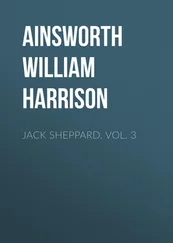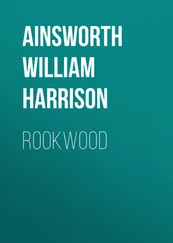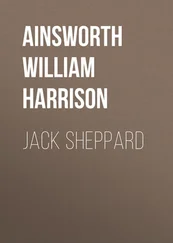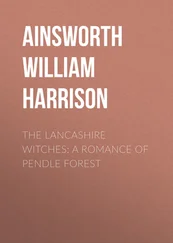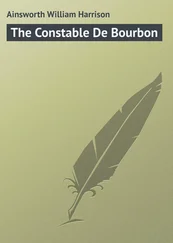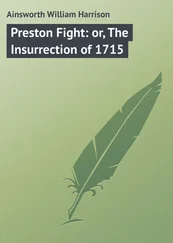W. Ainsworth - Rookwood
Здесь есть возможность читать онлайн «W. Ainsworth - Rookwood» весь текст электронной книги совершенно бесплатно (целиком полную версию без сокращений). В некоторых случаях можно слушать аудио, скачать через торрент в формате fb2 и присутствует краткое содержание. Жанр: Старинная литература, на русском языке. Описание произведения, (предисловие) а так же отзывы посетителей доступны на портале библиотеки ЛибКат.
- Название:Rookwood
- Автор:
- Жанр:
- Год:неизвестен
- ISBN:нет данных
- Рейтинг книги:4 / 5. Голосов: 1
-
Избранное:Добавить в избранное
- Отзывы:
-
Ваша оценка:
- 80
- 1
- 2
- 3
- 4
- 5
Rookwood: краткое содержание, описание и аннотация
Предлагаем к чтению аннотацию, описание, краткое содержание или предисловие (зависит от того, что написал сам автор книги «Rookwood»). Если вы не нашли необходимую информацию о книге — напишите в комментариях, мы постараемся отыскать её.
Rookwood — читать онлайн бесплатно полную книгу (весь текст) целиком
Ниже представлен текст книги, разбитый по страницам. Система сохранения места последней прочитанной страницы, позволяет с удобством читать онлайн бесплатно книгу «Rookwood», без необходимости каждый раз заново искать на чём Вы остановились. Поставьте закладку, и сможете в любой момент перейти на страницу, на которой закончили чтение.
Интервал:
Закладка:
"Silence, sirrah," exclaimed the gentleman, "or I will beat your brains out with your own spade."
"No; let him speak, Vavasour," said the lady, with an expression of anguish—"he has awakened thoughts of other days."
"I have done," said Peter, "and must to work. Will you descend with me, madam, into the sepulchre of your ancestry? All your family lie within—ay, and the Lady Eleanor, your mother, amongst the number."
Mrs. Mowbray signified her assent, and the party prepared to follow him.
The sexton held the lantern, so as to throw its light upon the steps as they entered the gloomy receptacle of the departed. Eleanor half repented having ventured within its dreary limits, so much did the appearance of the yawning catacombs, surcharged with mortality, and, above all, the ghostly figure of the grim knight, affect her with dread, as she looked wistfully around. She required all the support her brother's arm could afford her; nor was Mrs. Mowbray altogether unmoved.
"And all the family are here interred, you say?" enquired the latter.
"All," replied the sexton.
"Where, then, lies Sir Reginald's younger brother?"
"Who?" exclaimed Peter, starting.
"Alan Rookwood."
"What of him?"
"Nothing of moment. But I thought you could, perhaps, inform me. He died young."
"He did," replied Peter, in an altered tone—"very young; but not before he had lived to an old age of wretchedness. Do you know his story, madam?"
"I have heard it."
"From your father's lips?"
"From Sir Reginald Rookwood's—never. Call him not my father, sirrah; even here I will not have him named so to me."
"Your pardon, madam," returned the sexton. "Great cruelty was shown to the Lady Eleanor, and may well call forth implacable resentment in her child; yet methinks the wrong he did his brother Alan was the foulest stain with which Sir Reginald's black soul was dyed."
"With what particular wrong dost thou charge Sir Reginald?" demanded Major Mowbray. "What injury did he inflict upon his brother Alan?"
"He wronged his brother's honour," replied the sexton; "he robbed him of his wife, poisoned his existence, and hurried him to an untimely grave."
Eleanor shudderingly held back during this horrible narration, the hearing of which she would willingly have shunned, had it been possible.
"Can this be true?" asked the major.
"Too true, my son," replied Mrs. Mowbray, sorrowfully.
"And where lies the unfortunate Alan?" asked Major Mowbray.
"'Twixt two crossroads. Where else should the suicide lie?"
Evading any further question, Peter hastily traversed the vault, elevating the light, so as to reveal the contents of each cell. One circumstance filled him with surprise and dismay—he could nowhere perceive the coffin of his daughter. In vain he peered into every catacomb—they were apparently undisturbed; and, with much internal marvelling and misgiving, Peter gave up the search. "That vision is now explained," muttered he; "the body is removed, but by whom? Death! can I doubt? It must be Lady Rookwood—who else can have any interest in its removal. She has acted boldly. But she shall yet have reason to repent her temerity." As he continued his search, his companions silently followed. Suddenly he stopped, and, signifying that all was finished, they not unwillingly quitted this abode of horror, leaving him behind them.
"It is a dreadful place," whispered Eleanor to her mother; "nor would I have visited it, had I conceived anything of its horrors. And that strange man! who or what is he?"
"Ay, who is he?" repeated Major Mowbray.
"I recollect him now," replied Mrs. Mowbray; "he is one who has ever been connected with the family. He had a daughter, whose beauty was her ruin: it is a sad tale; I cannot tell it now: you have heard enough of misery and guilt: but that may account for his bitterness of speech. He was a dependant upon my poor brother."
"Poor man!" replied Eleanor; "if he has been unfortunate, I pity him. I am sorry we have been into that dreadful place. I am very faint: and I tremble more than ever at the thought of meeting Ranulph Rookwood again. I can scarcely support myself—I am sure I shall not venture to look upon him."
"Had I dreamed of the likelihood of his attending the ceremony, rest assured, dear Eleanor, we should not have been here: but I was informed there was no possibility of his return. Compose yourself, my child. It will be a trying time to both of us; but it is now inevitable."
At this moment, the bell began to toll. "The procession has started," said Peter, as he passed the Mowbrays. "That bell announces the setting out."
"See yonder persons hurrying to the door," exclaimed Eleanor, with eagerness, and trembling violently. "They are coming. Oh! I shall never be able to go through with it, dear mother."
Peter hastened to the church door, where he stationed himself, in company with a host of others equally curious. Flickering lights in the distance, shining like stars through the trees, showed them that the procession was collecting in front of the hall. The rain had now entirely ceased; the thunder muttered from afar, and the lightning seemed only to lick the moisture from the trees. The bell continued to toll, and its loud booming awoke the drowsy echoes of the valley. On the sudden, a solitary, startling concussion of thunder was heard; and presently a man rushed down from the belfry, with the tidings that he had seen a ball of fire fall from a cloud right over the hall. Every car was on the alert for the next sound: none was heard. It was the crisis of the storm. Still the funeral procession advanced not. The strong sheen of the torchlight was still visible from the bottom of the avenue, now disappearing, now brightly glimmering, as if the bearers were hurrying to and fro amongst the trees. It was evident that much confusion prevailed, and that some misadventure had occurred. Each man muttered to his neighbour, and few were there who had not in a measure surmised the cause of the delay. At this juncture, a person without his hat, breathless with haste, and almost palsied with fright, rushed through the midst of them, and, stumbling over the threshold, fell headlong into the church.
"What's the matter, Master Plant? What has happened? Tell us! Tell us!" exclaimed several voices simultaneously.
"Lord have mercy upon us!" cried Plant, gasping for utterance, and not attempting to raise himself. "It's horrible! dreadful! oh!—oh!"
"What has happened?" enquired Peter, approaching the fallen man.
"And dost thou need to ask, Peter Bradley? thou, who foretold it all? but I will not say what I think, though my tongue itches to tell thee the truth. Be satisfied, thy wizard's lore has served thee right—he is dead."
"Who? Ranulph Rookwood! Has anything befallen him, or the prisoner, Luke Bradley?" asked the sexton, with eagerness.
A scream here burst forth from one who was standing behind the group; and, in spite of the efforts of her mother to withhold her, Eleanor Mowbray rushed forward.
"Has aught happened to Sir Ranulph?" asked she.
"Noa—noa—not Sir Ranulph—he be with the body."
"Heaven be thanked for that!" exclaimed Eleanor. And then, as ashamed of her own vehemence, and, it might seem, apparent indifference to another's fate, she enquired who was hurt?
"It be poor neighbour Toft, that be killed by a thunderbolt, ma'am," replied Plant.
Exclamations of horror burst from all around.
No one was more surprised at this intelligence than the sexton. Like many other seers, he had not, in all probability, calculated upon the fulfilment of his predictions, and he now stared aghast at the extent of his own foreknowledge.
"I tell'ee what, Master Peter," said Plant, shaking his bullet-head; "it be well for thee thou didn't live in my grandfather's time, or thou'dst ha' been ducked in a blanket; or may be burnt at the stake, like Ridley and Latimer, as we read on—but however that may be, ye shall hear how poor Toft's death came to pass, and nobody can tell'ee better nor I, seeing I were near to him, poor fellow, at the time. Well, we thought as how the storm were all over—and had all got into order of march, and were just beginning to step up the avenue, the coffin-bearers pushing lustily along, and the torches shining grandly, when poor Simon Toft, who could never travel well in liquor in his life, reeled to one side, and staggering against the first huge lime-tree, sat himself down beneath it—thou knowest the tree I mean."
Читать дальшеИнтервал:
Закладка:
Похожие книги на «Rookwood»
Представляем Вашему вниманию похожие книги на «Rookwood» списком для выбора. Мы отобрали схожую по названию и смыслу литературу в надежде предоставить читателям больше вариантов отыскать новые, интересные, ещё непрочитанные произведения.
Обсуждение, отзывы о книге «Rookwood» и просто собственные мнения читателей. Оставьте ваши комментарии, напишите, что Вы думаете о произведении, его смысле или главных героях. Укажите что конкретно понравилось, а что нет, и почему Вы так считаете.

